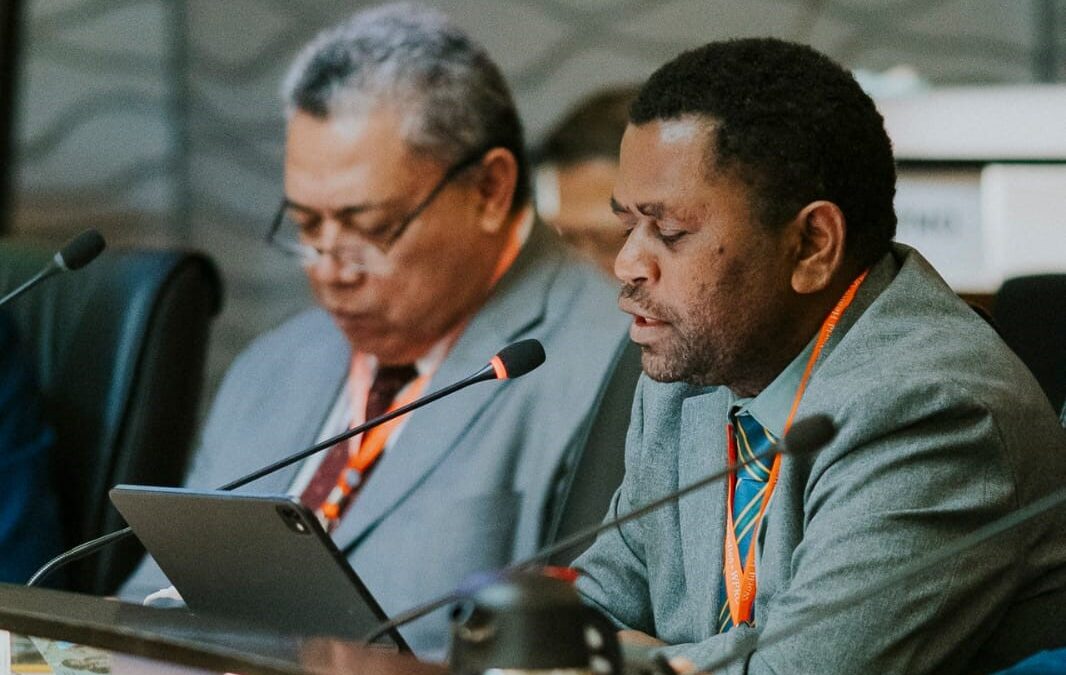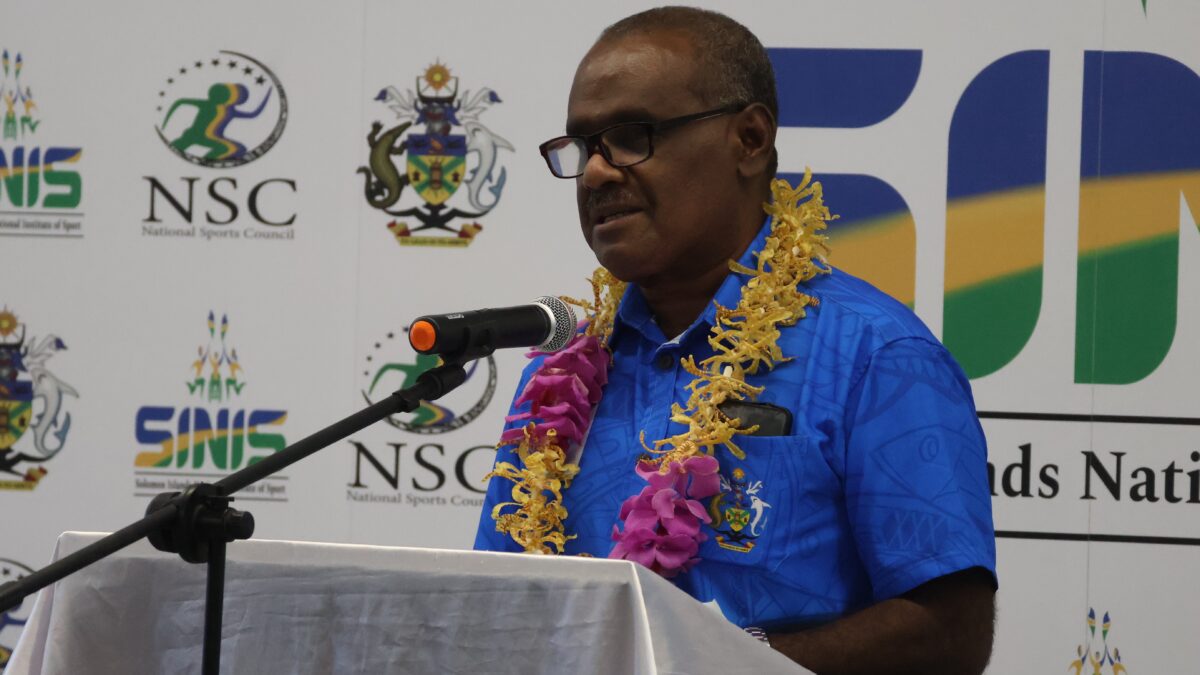Newly Endorsed WHO Executive Board Member and MHMS Minister Dr Bosawai, Photo: WHO Press
Health Leaders at the 75th Regional Committee Meeting of the Western Pacific Region have been informed of Solomon Islands interventions on Digital Health.
A 2022 assessment by WHO identified areas for improvement including better governance and legislation, clearer standards and improved system compatibility, and enhanced workforce capacity to accelerate digital health transformation. Three priority areas include improved digital health governance, people-centric technologies and to empower and engage diverse players.
In response, WHO, will collaborate with Member States, depending on the priorities of their digital health development, along with other partners to create national digital health plans. The Regional Action Framework on Digital Health in the Western Pacific promotes an innovative and participatory digital health ecosystem that uses data and technology to improve access, quality and sustainability of health and health care.
Presenting Solomon Islands intervention at the meeting, Minister for Health and Medical Services Dr Bosawai shared work on the ground being done with WHO to advance digital health.
“The Ministry of Health and Medical Services in the Solomon Islands is actively advancing digital health initiatives with the support of the World Health Organization and various stakeholders. Key trends include telemedicine and remote care, aligned with global initiatives such as the National Strategy on Digital Health. The Ministry conducts regular stakeholder meetings and is currently undertaking a digital health maturity assessment (DHMA) with the support of WHO. This assessment, focusing on eight critical domains, involves interviews and surveys with a wide range of stakeholders and health facilities. Preliminary findings highlight significant infrastructure gaps, financial sustainability issues, low digital literacy among healthcare workers, and limited data utilization at lower administrative levels.”
“Interviews and surveys are currently being conducted with a wide range of stakeholders, including various departments within the Ministry of Health and Medical Services (MHMS) and national health programs, other government ministries, development partners, external entities such as SINU (Solomon Islands National University), and 35 health facilities across all 10 Provinces of Solomon Islands.
“There are several key challenges and opportunities that I wish to share from preliminary findings:
- Infrastructure gaps: Many Area Health Centres (AHCs), Rural Health Centres (RHCs), and National Action Plans (NAPs) face significant barriers due to a lack of access to power, hardware (computers, laptops, or tablets), and internet connectivity. In contrast, hospitals are generally more equipped from an infrastructure perspective.
- Financial sustainability: While development partners can cover initial costs, the ongoing maintenance of digital health systems at facilities is unsustainable due to a lack of budgetary support.
- Digital literacy: Computer and digital literacy levels among nurses, nurse aides, and midwives are generally low, presenting a critical barrier to digital health adoption and limiting opportunities for online training and professional development. In contrast, doctors tend to have higher digital literacy due to their exposure during pre-service training, which positions them better to engage with digital health tools. Awareness and leadership: Knowledge of digital health and its potential benefits is limited among facility staff and provincial offices, hindering the leadership needed to drive digital health initiatives.
- Data use: Although the data collected through DHIS2 is valuable, where its use is mostly confined to the national level. More work is required to help provinces and facilities effectively leverage this data within their own operational contexts by improving the feedback loop.
“The assessment will inform the development of a comprehensive digital health strategy, ensuring alignment with national policies and the digital transformation strategy, and on this note endorses the Regional Action Framework on Digital Health in the Western Pacific said Minister Bosawai.
Meanwhile the 75th session of the RCM closed today with Fiji being announced as the next host for the 76th WPRO RCM in 2025.



